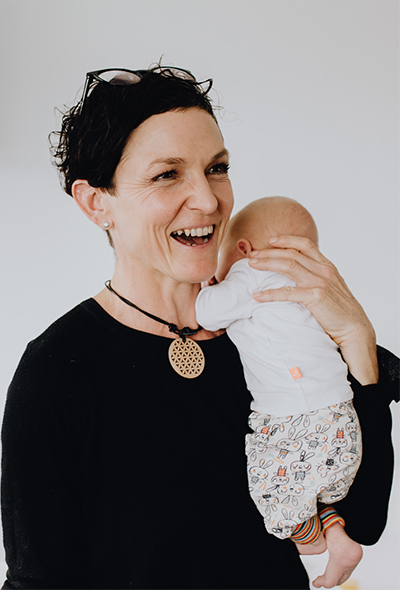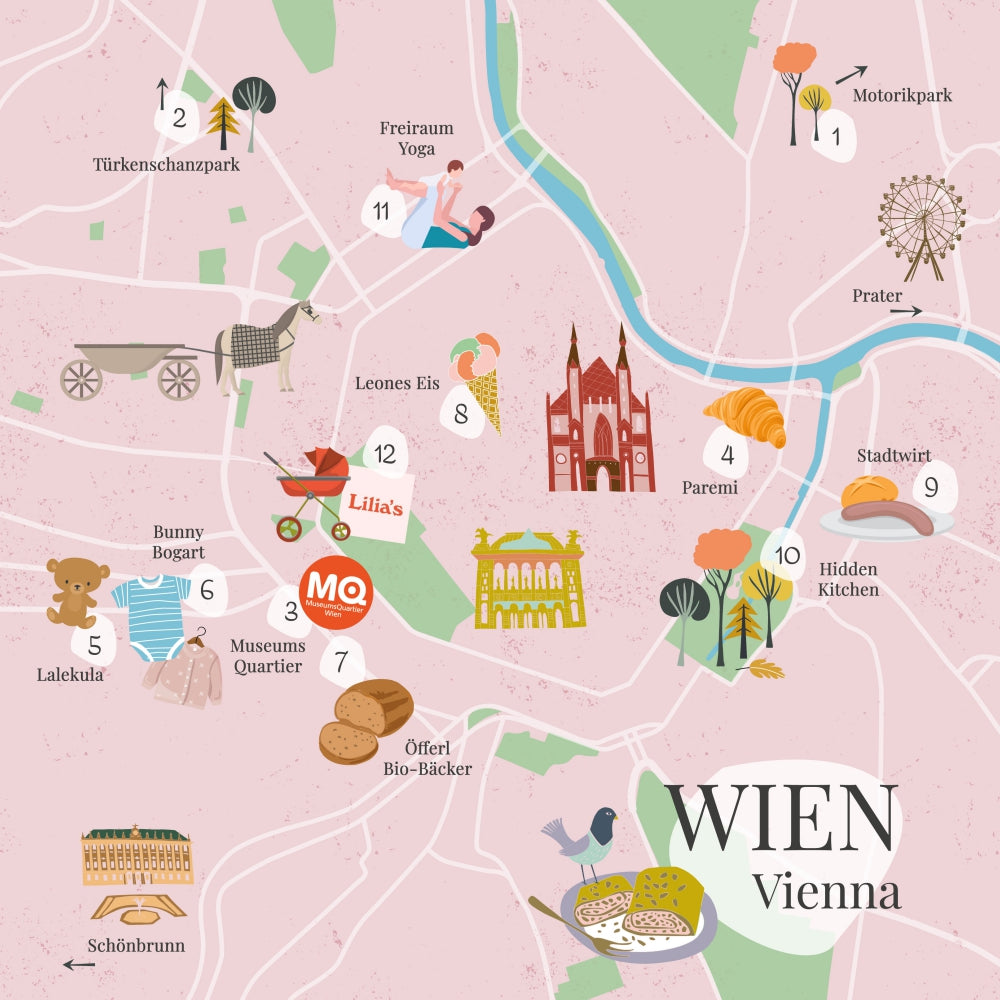I'm currently in front of my laptop at the online birth preparation course. I see all the couples on camera and we chat about the Caesarean section, or more specifically, the planned Caesarean section. All the women in the group can sense the negative feelings that come with this term. Finally, a man asks what the problem with the Caesarean section actually is. It's super easy to plan and clean, there's no pain, and you have the baby next to you afterwards.
There is a brief moment of silence, but then the women's answers come straight away. Only after a certain amount of time am I able to share my experiences, which are the result of many experiences and conversations with affected women.
You can see that men generally think about the topic in a much more pragmatic way than we women do. Of course, we women also take on a different role, because we are the ones affected. But it is also the emotional world that makes us more thoughtful.
Women are often unsure about caesarean sections
Women know the importance of building a bond, the state of shock the child goes through when it is simply brought into the world without telling the child, and the adjustment problems that often occur as a result (and possibly the need for short-term admission to the children's ward). Most women have also considered that the lack of contact with the mother's vaginal mucus (in a normal birth when the child passes through the birth canal) has a disadvantage for the microbiome of the child's intestines, breast milk comes in later and the children are delayed in latching onto the breast.
Many women are also aware of the long-term negative consequences for their immune system or their psyche.
All of this means that women are generally not happy about a planned Caesarean section. In most cases, the reason is medical. Now, one can certainly discuss the (more or less justified) indications, since the current Caesarean section rate of around 30% (!) - in some hospitals and countries even higher - is in no way proportionate to the benefit.
"I explain to couples that they can offer the child different gifts to start off in life. If one is not possible, they can focus on the others."
So once the decision has been made (in rare cases by the woman giving birth) to have a planned Caesarean section, the couple is usually concerned with keeping the consequences as minimal as possible.
A comment in advance that I always give to the couples:
NOTHING IS FINAL AND IRREVERSIBLE!
What this means is that I often explain to women and couples in my birth preparation that they are offering the child various “gifts” to start it off in life. What do I mean by that?
- Pay attention to a stress-free pregnancy
- Healthy nutrition during pregnancy, in the postpartum period and beyond
- Natural vaginal birth – preferably without painkillers
- breastfeeding
- Care, treatment and education of the child with a lot of love and understanding for each other
- Sheltered home – a safe space for the children
So if one “gift” doesn’t work so well or isn’t even possible, you can focus on the other gifts and try to make them possible as a parent.
For example, if the birth has to be a planned Caesarean section and the intestinal microbiome and thus general health are affected, you can focus on breastfeeding or a healthy diet afterwards. This is almost as effective and definitely has a balancing effect!
Talk to your baby about what is coming soon.
The question quickly arises: “Can I prepare for this?” and “How?”
Basically, women can prepare themselves by talking to the child beforehand and simply telling the baby what is about to happen. I am convinced that the close bond between mother and child definitely makes a difference.
Currently, there is also a method of keeping the vaginal mucus ready for the child after birth and giving it to the child in the mouth as soon as possible. However, I personally believe that it makes a difference whether the baby is given this vaginal mucus directly when passing through the birth canal or whether it is "served". Feel free to discuss this with your midwife.
Afterwards, you can make sure to do as much bonding and breastfeeding as possible. Nowadays, if a planned Caesarean section is performed, where a healthy, stable child is expected, bonding is made possible during the operation. Immediately after birth, the child is wrapped in warm towels for a short time and then immediately brought to the mother's breast, where it can have sufficient skin contact with the mother and also contact with the father during the operation. Fathers can usually go into the operating room with the child during a planned Caesarean section.
After that, it is a good idea to put the baby to the breast as soon as possible and give the family plenty of time to get to know each other.
Good recovery, wound healing and early mobilization
After this, it is also important for the woman to ensure that she recovers well and, above all, that the wound heals properly (with the advice of a midwife). This involves early mobilization (to reduce the risk of thrombosis) and thus removing the permanent catheter as soon as possible (to avoid a urinary tract infection).
At home, you first let the wound heal in peace. When the edges of the wound have closed, you can slowly start massaging the scar. This is not only useful so that the scar area does not stick together, but is also important for establishing contact with and accepting your own scar.
So if a planned Caesarean section is on the table, try - after the initial shock - to accept it as a given and focus on your mother-child project / the Caesarean birth and the shared path into (new) life. Because just by knowing about the disadvantages of the Caesarean section, you will do everything you can to make everything ideal and thus take care of your body and well-being, as well as giving your child a perfect start in life.








Leave a comment
All comments are moderated before being published.
This site is protected by hCaptcha and the hCaptcha Privacy Policy and Terms of Service apply.